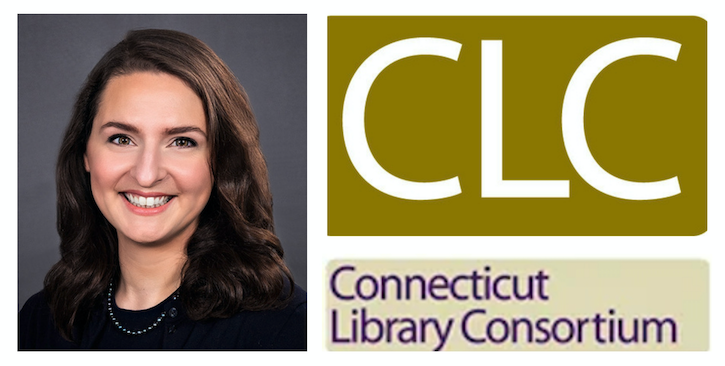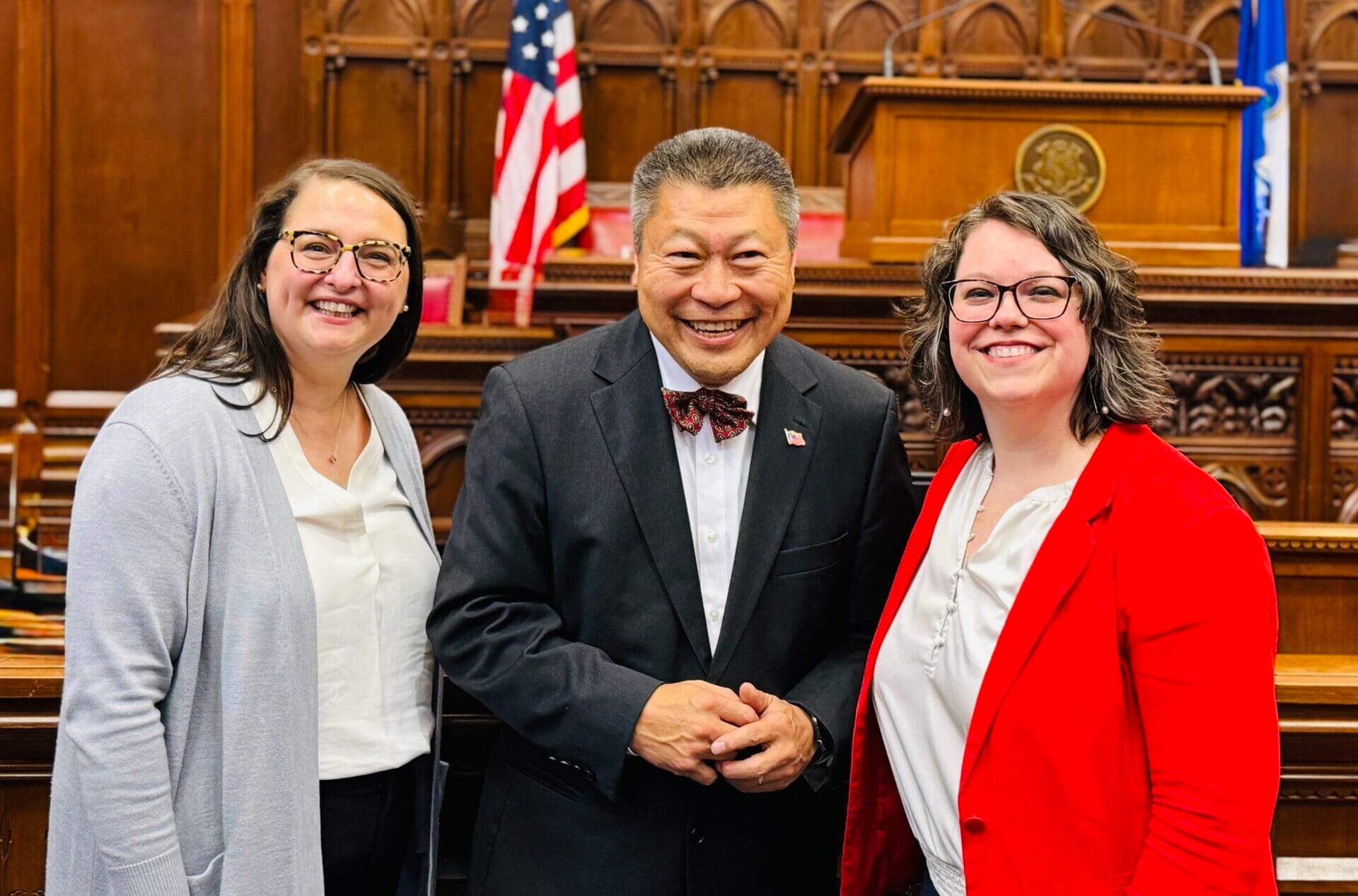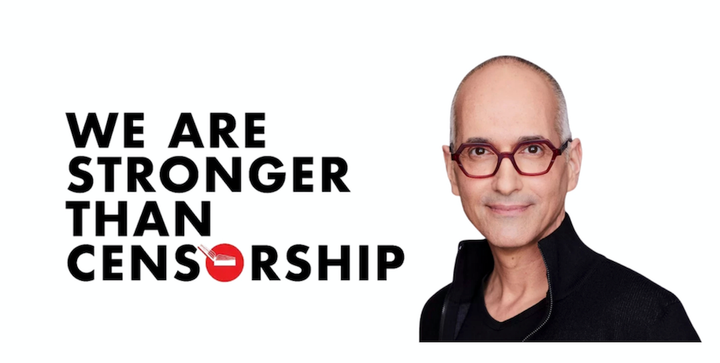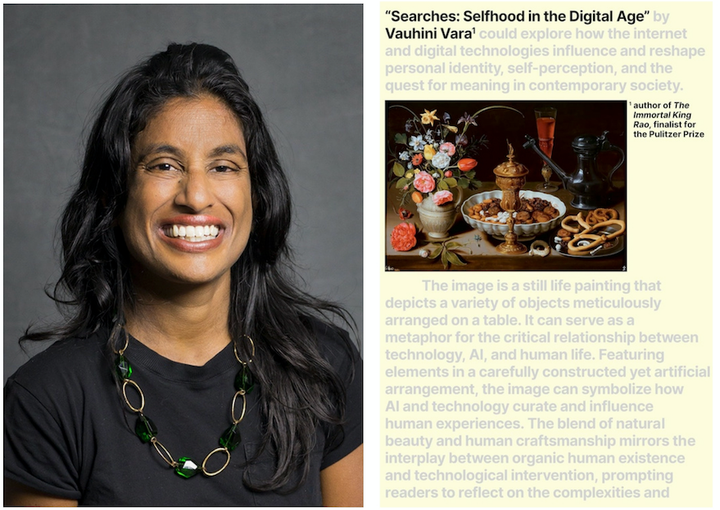In Conversation: Connecticut Library Consortium Executive Director Ellen Paul
Words & Money talks with Connecticut Library Consortium executive director Ellen Paul about Connecticut's new library ebook bill, the long and winding road to passage, and what comes next.

On May 16, the Connecticut library community celebrated a legislative victory with the passage of SB 1234, a new law that seeks to protect libraries in the digital library marketplace.
The bill is the first library ebook law to pass since Maryland's groundbreaking first attempt was struck down by a federal judge in Febrauary 2022 for running afoul of copyright law. But while the Maryland law failed in the courts, library advocates insisted that the need for legislative protections did not go away. And after their high profile defeat in Maryland, library advocates and policy experts quietly went back to the drawing board to draft new language that would survive in court. And while SB 1234 is the first state bill from that effort to pass, it may not be the last. "We hope this paves the way for other states facing the same challenges,” said Connecticut State Librarian Deborah Schander, in a statement.
As readers may recall, the law in Maryland emerged as a direct response to Macmillan's 2019 experiment to window digital content in libraries. The publisher abandoned that controversial policy in March 2020, in the early days of the pandemic shutdowns. But Macmillan's experiment did not form in a vacuum. The library ebook market has been fraught from the outset. And Macmillan's move in 2019 followed a contentious 18-month period during which all of the Big Five publishers raised prices and imposed new restrictions on digital lending in public libraries. And while the Covid-19 crisis prompted several major publishers to relax e-lending terms in the short term, librarians say the the high prices and non-negotiable terms they have long criticized persist.
Following the passage of SB 1234, we caught up with one of the law's prime movers, Connecticut Library Consortium executive director Ellen Paul to talk about the new bill, the long and winding road to passage, and what comes next.
At first glance, Connecticut's ebook bill, SB 1234, appears to be more limited in scope than the first library ebook bill that was struck down by the courts in early 2022. What objective is this bill designed to achieve?
Ellen Paul: I wouldn’t say that this bill is more limited in scope than the Maryland bill that was struck down in court for its preemption of the federal Copyright Act, but it is significantly different. The objective is to restore the right to negotiate so libraries aren’t forced into take-it-or-leave-it digital deals. We are not telling publishers how to price their works or forcing them to offer licenses. Rather, this law prevents libraries from entering into contracts that impose overly restrictive terms.
For example, a typical metered license from a major publisher today can be for two years or 52 borrows, whichever comes first. With our bill, libraries can agree to one or the other, but not both. Also, with this bill, if a publisher is offering a metered license, they must also offer an option for perpetual use or pay-per-use on ‘commercially reasonable terms in consideration of the library’s mission.’ It will be up to the library to make decisions on what pricing they are willing to accept, but, again, the goal is to get publishers to negotiate prices and terms that reflect the library’s essential role, and are fair to taxpayers.
After our story ran last week we heard some publisher reaction, on background, and the response was much the same as it was with past legislative efforts in this space—they think the bill is probably illegal. Have you heard any reaction from publishers?
No, but that’s a disappointing response. You know, I have been working on this bill for four years. My phone number has never changed. At any point, any publisher could have picked up the phone and said, ‘hey, let's resolve this.’ but that hasn’t happened. We don't like having to come to the legislature to solve this problem, and I’ve said as much to our state legislators. But this is a problem that's been going on for years, and it gets worse each year.
If we could get the major publishers to come to the table to negotiate a balanced approach to these licensing agreements, that’s what we’d all prefer. And we have certainly tried to encourage that. During the 2024 legislative session, the leadership in the Connecticut General Assembly said to our legislative champions, 'you know, the publishers really want to talk.' But the publishers never followed up. We are hoping that this bill will spur a conversation with publishers on an approach to ebook licensing that better balances the needs of libraries and publishers.
Do you think publishers might sue? And maybe more importantly, are you confident this bill can withstand a legal challenge?
We don’t expect the publishing industry to take this legislation laying down. We expect there may be pushback through the courts, as there was in Maryland years ago. But unlike Maryland’s law—which attempted to mandate publisher behavior—our bill is focused on contract fairness. Again, this legislation does not tell publishers what to do—it simply says libraries cannot sign exploitative contracts. We believe that's legally sound and constitutionally distinct. And, potentially, a national model.
So yes, we are confident the bill is legal. As our solicitor general Josh Perry testified, nothing in the law runs afoul of the Copyright Act or the Commerce Clause, nor does the bill regulate publishers in any way. It seeks to ensure that public funds in Connecticut are spent responsibly. And Perry said he is prepared to ‘zealously’ defend this bill in court, if challenged.
I’ll also note too that the bill’s provisions are all severable. So, even if one or more provisions are struck down, the entire law does not have to be.

Do you think Governor Lamont will sign the bill?
We think so. What our legislative champions have told me is that the governor wouldn't have allowed the bill to get this far if he was going to veto it. We are actually talking to the governor's office about a signing ceremony, too.
Also interesting is the trigger clause. Even if the governor signs the bill, it won’t go into effect until another state (or states) with a total population of seven million enacts library ebook legislation. Explain why that provision is in there? And are any other states considering bills that would satisfy the trigger clause?
The problem with library ebook licensing is so much larger than Connecticut. So the trigger is a way to encourage other states to follow Connecticut’s lead and the roadmap we just laid out. This legislation isn’t just about libraries, it’s about standing up for your town, your budget, and your taxpayers. Since the beginning of the digital age, the publishing industry has dictated the terms. Now it’s time for states to push back on behalf of their readers and their taxpayers.
As for if and when the bill will be triggered, we know that Massachusetts, Rhode Island, and Hawaii have been running similar bills for years, and that New York, New Jersey, and Washington are also interested. I believe New Jersey may introduce similar legislation this summer.
This bill also contains a few other interesting provisions. One bars libraries from signing NDAs concealing their terms, for example. And another calls for libraries to have the right to make non-public preservation copies—which most trade ebook licenses certainly don't allow. Explain why these provisions were important to include?
Just from my personal perspective, when it comes to spending public money there should never be a confidentiality or non-disclosure agreement attached to any of our contracts. I don’t think that should be controversial to anyone.
And the preservation piece of the bill gets to the important work of libraries and archives to preserve iterations of information in their original format. It acknowledges the reality that licensed digital work can be changed by the publisher with no notice to users. We saw this recently when the publisher of Roald Dahl proposed pushing out politically correct changes to the text. Without the ability to create a preservation copy, anything that is born digital could be changed, or even disappear, at any moment at the publishers discretion. We cannot preserve history if history is constantly being rewritten.
My impression is that a lot of people in the library community were pretty demoralized by what happened with Maryland's ebook law, and perhaps skeptical about future legislative efforts. Was it hard to get and maintain support for this bill?
No. We had a strong coalition of the Connecticut State Library the Connecticut Library Consortium and the Connecticut Library Association on board from day one. And then, more recently, the Connecticut Association of School Librarians got on board as well, and that organization has really grown in strength. I think the biggest hurdle was with folks who don't do collection development or the budgeting portion of this, or who aren't library directors. So good communication was really important, as well as education about the issues libraries face with ebook access and why it is important that we fix this.
You know, legislation takes a long time. And while the Maryland bill ultimately failed, we learned from that, and we improved upon it. Just because you get knocked down once doesn't mean you stay down. And if you understand how lawmaking works, you know that you have to be in it for the long haul. I mean, even the most basic bills in Connecticut often take three years to pass. So, us taking four years is actually on target.
That said, it can be a tough task to keep librarians and library supporters engaged. Especially after last year, when we got the bill to the floor of the house before the clock ran out on us. But I approach the process as a sort of civics education. Government is meant to work slowly and deliberately, and for good reason. So, we made sure we had really good communication with Connecticut librarians, keeping them up to date not just about what was happening, but why it was happening. When people understand that this is how the legislative process works, they don't feel dispirited and they stay engaged.
I'm curious to hear how you would frame the ebook issue today? I think most of our readers understand there is tension in the digital library marketplace. But I’m interested in how you see the problem you're addressing with this bill, a decade after the major publishers finally went all-in on the digital library market, six years after Macmillan’s controversial windowing experiment in 2019, and a few years since the pandemic sparked a surge in digital lending. Has the digital library landscape changed, or is it largely the same issue we’ve been grappling with for all these years?
I think it is the same issue. Libraries continue to spend a lot of public money on ebooks with no negotiation. And we simply cannot be good stewards of public money, nor can we fulfill our mission to build and retain diverse collections when we are forced into accepting licenses with non-negotiable high prices and restrictive terms.
In Connecticut, ebook and digital audiobook borrowing continues to rise year over year. As usage increases, so too does the percentage of the library budget that goes towards licensing digital content. And we’ve reached a crisis point because so much of the content we license at a great cost is constantly disappearing off of our shelves. We can’t keep up with reader demand let alone build meaningful collections for our users. And our patrons feel it too when they are left waiting for months and months for an ebook or a digital audiobook.
Also, much of our budget goes to just a few major publishers who publish the big bestsellers that are most in demand and are the most expensive by far. Libraries exist to serve everyone in our community, but the prices and terms dictated to us by the major publishers make it impossible to build robust digital collections that will serve the entire community.
How strong was the opposition from publishers to this bill?
We have been running iterations of this bill in the Connecticut General Assembly for the last four years. The first three years, the Association of American Publishers had a heavy lobbying presence in Hartford. This year was quiet.
But over the last four years, our message to publishers has been really clear and consistent: Libraries are not your competitors—we are your most powerful and enduring marketing force. Very few industries offer taxpayer-funded, lifelong promotion of their products like libraries do. We put your books in front of readers of every age and background, without asking anything in return. If you’re a successful author, chances are a library introduced someone to your work. This law doesn’t threaten that relationship—it protects and modernizes it. The truth is, those who borrow books also buy books.
I was surprised to see indie publisher groups previously opposed this bill. As I understand it, indie publishers generally offer fair digital prices and terms to libraries. But when a Big Five e-book costs $80 for two years, that's three or four indie books a library can't buy. So don't indie publishers stand to benefit from this legislation?
Yes. We were disappointed that the Independent Book Publisher’s Association opposed this legislation in 2023. Many of the terms Connecticut libraries asked for in this bill are things that IBPA members are already doing. And you’re right—one of the major challenges libraries face is having to spend money on keeping the holds list down on the latest digital bestsellers from the Big Five. If pricing and terms for those best sellers was more balanced, it would greatly benefit indie authors and publishers, and of course, readers, because libraries would be able to procure a greater diversity of authors and build better collections.


